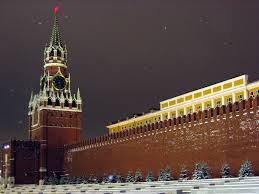(Foreign Affairs) Russian President Vladimir Putin’s startling military takeover of Crimea in response to the February revolution in Kiev left Western leaders scrambling. Internationally, Putin seems the master grand strategist, just as he had after his successful effort in September 2013 to head off potential aerial strikes on Syria. At home, he appears equally in command, having ruled Russia for the last 15 years, with another ten years a distinct possibility. It would be a mistake, however, to overestimate Putin or Russia — or to underestimate how badly his gambit in Ukraine could turn out for him. Finding a way out of this crisis requires an understanding both of why Putin instigated it and of how it will affect his rule.
Putin’s thinking was on display in a March 4 press conference, his first public statement since the Crimea crisis began. He referred to the events in Kiev not as a revolution but as “an anticonstitutional coup and armed seizure of power,” calling the current authorities in Kiev “illegitimate.” He blamed the West for interference in Ukraine, drawing a comparison to “America employees of some laboratory … conducting experiments like on rats, not understanding the consequences of what they are doing.” And he denied that Russia had deployed forces in Crimea, but reserved the right to do so (and not only in Crimea) to protect the local population. Several Western journalists immediately asked whether Putin had lost his mind. […]
See the full article © Foreign Affairs/Council on Foreign Relations











